
About the Collection
Inspired by an initiative of Methuen Drama, in 2020 Australian Plays (an APT predecessor organisation) launched a campaign to keep us all reading and sharing great plays through the COVID-19 pandemic using the hashtag #AustralianPlayADay
Prominent theatre artists were asked to nominate three Australian plays from our collection that have made an impact on them, and their reflections were shared these over the course of a few months in 2020.
This remains both a unique snapshot of a time and a fascinating insight into the Australian repertoire, so we have retained it here for your enjoyment.
What Are You Reading?
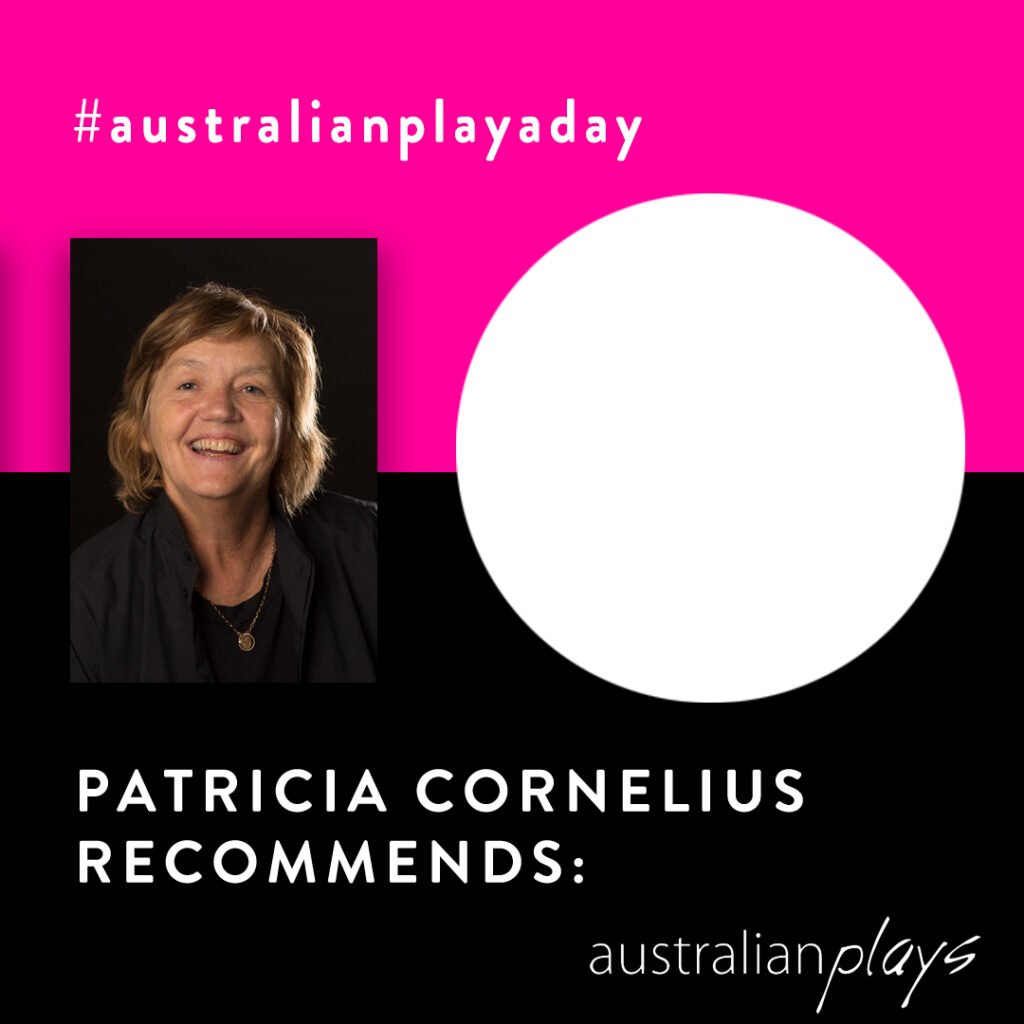
Furious Mattress
Melissa Reeves
The thing about Else is that she’s no more bewitched or bedevilled than anyone else. In fact she’s so recognisably ordinary and her desires are modest really and in no way unusual. But Pierce, her husband doesn’t think so, and nor does their friend, Anna who has been brought in to help. Max, a former plumber and local exorcist has been brought in too, to exorcise the numerous devils that Else supposedly has hiding malevolently in her body. Else is in big trouble but not because of the devils. She’s in trouble because she’s up against a backward, religious and conservative world that interprets this woman’s desire for love, for kindness and for something else rather than the mundane as Satan’s work.
This is a remarkable play about repression. It’s funny, it’s leaps of imagination are nothing short of brilliant. And it is devastating. One aches for Else. One wants her desperately to escape this terrible and unnecessary brutality. The fact that the play is inspired by a real incident – the murder of a woman who was beaten to death in an exorcism outside a small Victorian town gives the play an extra edge.
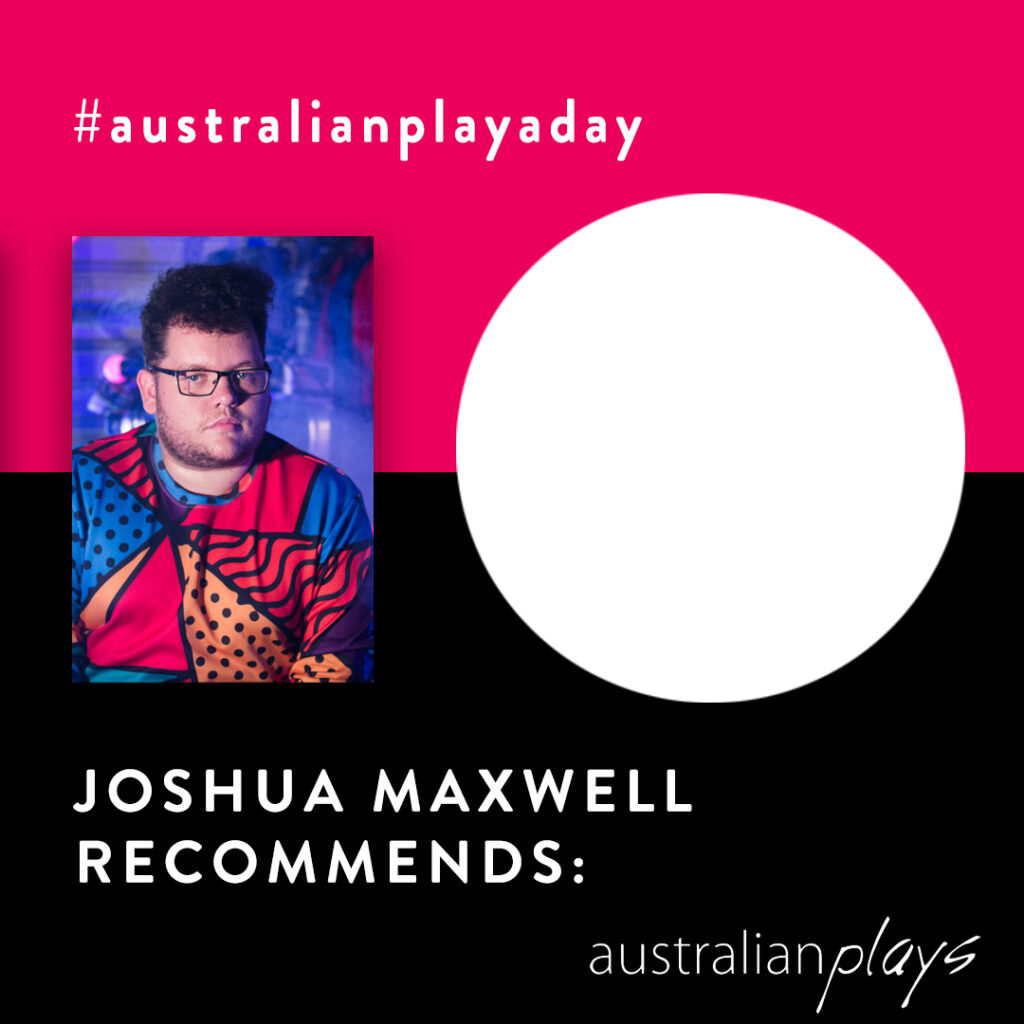
Gaybies
Dean Bryant
Gaybies is such a simple concept, give the microphone to the spoken about not those speaking about and for them. As a ‘gayby’ myself this isn’t just a deeply personal work, it’s a shining beacon of representation within the arts and media sector. Beautiful, and poignant storytelling filled with so much love – it’s a must read and if you happen to have a company – a must stage.
Because there was fire
Jamie Hornsby
When our little youth arts company decided to commission a then-unknown playwright from Adelaide, we had no idea this is what we’d get. I couldn’t put it down when it was first sent to me. I was speechless when I finished it. ‘because there was fire’ gives a devastating new perspective on the youth in our forgotten suburbs who yearn for more in a dangerous and emotional cocktail of wanderlust and boredom.
Grounded
Alana Valentine
I was fourteen when the Pasha Bulka grounded itself during the worse storms the east coast had seen in decades. It was a surreal time that’s etched into my mind. Not a likely backdrop for a piece of theatre but Valentine’s script is filled with charm, poignancy, and ambition. Farrar’s story is entirety unique yet completely relatable for young people. The piece celebrates the chaos and calm in the storms inside our own heads growing up. A perfect work for young performers and a hidden gem in Valentines’ impressive collection of augmented-verbatim.
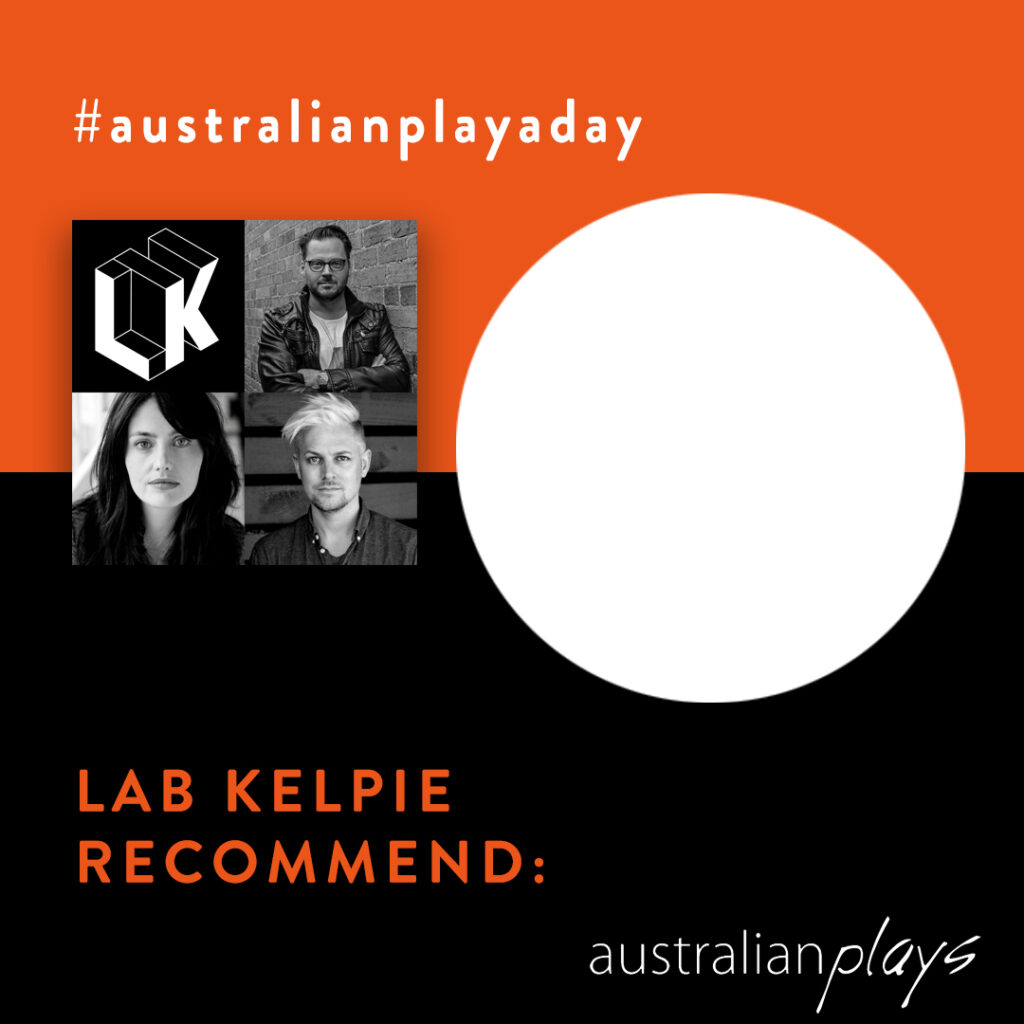
The Parricide
Diane Stubbings
An incredible playwright standing apart from the rest, Dianne Stubbings’ work is always sprawling and intense, textually lush and thematically ambitious, emotionally truthful and fiercely intelligent. And, in the case of The Parricide, is concentrated into 90 minutes of absolute pressure-cooker theatre.
Having performed in the 2014 premiere of this work, I know first-hand the gifts awaiting any actor or director willing to rise to the challenge. If you can commit passionately to the task, grappling with this unexpectedly sinuous beast will unearth layer upon joyful layer of complexity, and will ultimately be intensely rewarding for both the actors and the audience.
– Lyall Brooks, Lab Kelpie Artistic Director
Ruby Moon
Matt Cameron
Ruby Moon is one of those magical plays that makes you feel a sense of nostalgic wonder while also giving you creepy goosebumps. Like a fairytale, Matt Cameron’s familiar landscape seduces you with comforting tropes of Mum, Dad, Grandma, and the ice cream van playing Greensleeves – but as the play unwinds you hear that familiar tune warp into a wail as the comforts of suburbia turn into horror, menace and danger. Little children get lost and are never found. You don’t know who you can trust, and the wolf has been at your door the whole time. You question the truth of EVERYTHING.
The first time I picked up the play – at drama school, looking for monologues to stockpile – I found myself still standing next to the stacks an hour or so later, having read it all the way through without looking up. It’s just so deliciously, unashamedly theatrical. Two actors play all the roles – and the movement of characters passing through them dials up that creepy factor to 100. I’ll never get bored of reading this play – and I look forward to seeing someone take up the challenge soon.
– Sharon Davis, Lab Kelpie Literary Manager
Savages
Patricia Cornelius
I still remember the feeling in the pit of my stomach when I first read Savages. I still think about the scene where Rabbit instructs George to imagine throwing his lover overboard and letting her drown (No worries, I’m holding her head under / Wait! Wait til there’s not a peep out of her) and the complete ease with which these actions came to these men… these men that we recognise in various forms in our own lives. I remember feeling sorry for them – then hating and questioning myself for having those feelings.
Patricia writes ugliness from a place of truth like no one else, and Savages showed me how skilled writers can entertain, provoke, question and reflect ourselves back at us in one delicious fell swoop. I know Patricia hates the word “entertain” but to me it’s what sets her work apart; it’s easy to be didactic in your exploration of an issue or theme, but much harder to do it in an entertaining way that forces an audience to feel uncomfortable… and yet unable to look away. It’s a rare quality you find in all her work.
– Adam Fawcett, Lab Kelpie Creative Producer
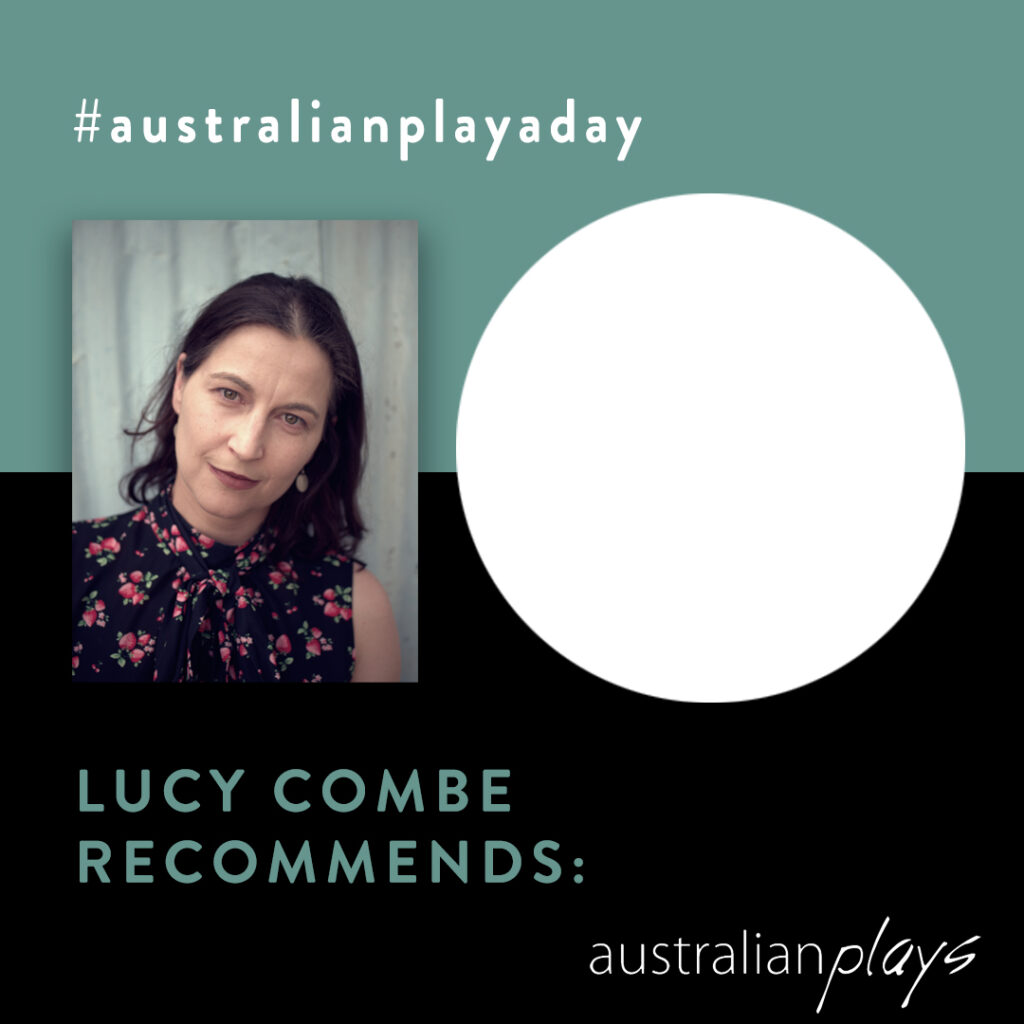
When The Rain Stops Falling
Andrew Bovell
I remember being so blown away by Andrew Bovell’s When the Rain Stops Falling when I first saw it as part of the 2008 Adelaide Festival. The play has since, of course, become nationally and internationally celebrated and audiences continue to be transported by the poetic richness and intimacy of the writing. For me, the play is such a beautiful reminder of the fragility of our relationships with each other and the earth, as well as the effects of inherited trauma. I love the way Bovell gives his audience space and permission to feel, and his ability to manage non-linear structure and time/place is masterful.
One Long Night in the Land of Nod
One Long Night in the Land of Nod
Duncan Graham
I was hypnotised by Duncan Graham’s One Long Night in the Land of Nod when I saw it performed at the 2018 Adelaide Fringe and needed to read the text. A modern Australian city vs bush retelling of Cain and Abel, I love the way the play considers the inescapability of family and home and the fluidity of sibling identity. There appears to be co-dependence and revulsion between the brothers in equal measure, and the pace of the tension mounts beautifully as they push and pull against each other. I find this space for character development fascinating, where as an audience you are constantly swinging between feeling as though you know them, you recognise them, you’ve met them…but then maybe you haven’t!
Gone Viral
Sally Hardy
I love the way you feel immersed in the world of a seventeen-year-old when you read Gone Viral by Sally Hardy. We are thrust into the space of teenage friendship, with all its relentlessness, joy and intensity. These relationships feel authentic and have been sensitively drawn, humorously but without parody. The dialogue is fast paced and crackles, and the play moves effectively between high-paced ensemble scenes and the play’s more intimate moments. The parallel worlds of home and school are also captured beautifully. Social media is a key aspect of the narrative, but to me, the story embodies the timelessness of growing up/rite of passage.
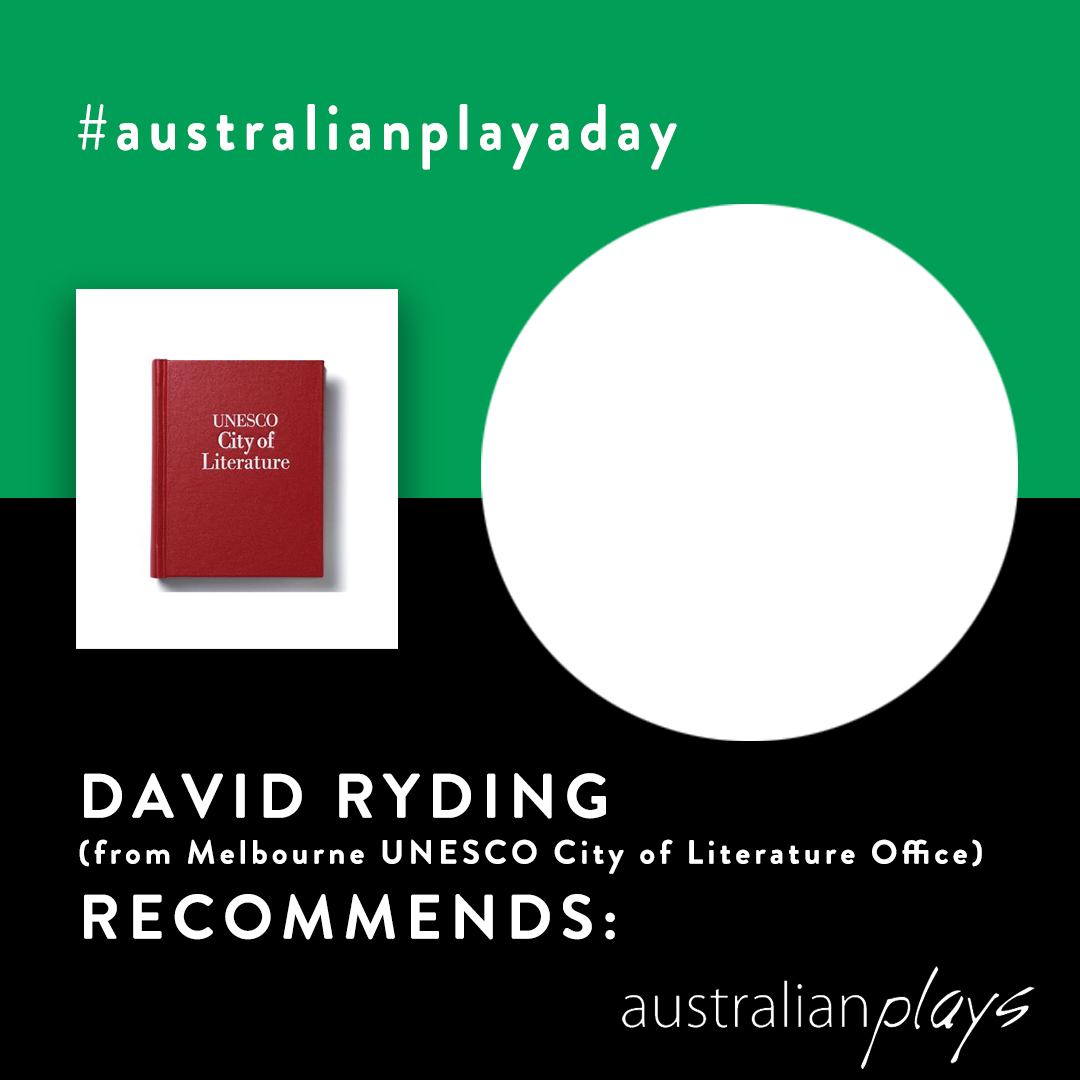
Broken
Mary Anne Butler
The first play to win the overall Victorian Premiers Literary Awards (and now we’ve have had three out of the last four winners be plays!). This reads like a verse novel and all the tension, drama and sense of place that you would find on the stage jumps off the page.
Beyond the Neck
Tom Holloway
Not only a masterpiece in language and dialogue but a masterpiece in sensitive research and script development. What Tom did in listening to the people from Port Arthur and then telling a story that paid tribute to this awful incident and dignity to their pain is impressive.
SHIT
Patricia Cornelius
Patricia writes the most beautiful raw prose. SHIT is a highlight but you could really grab any of her plays and read a masterclass in restraint, space and the ‘elegance’ of language.
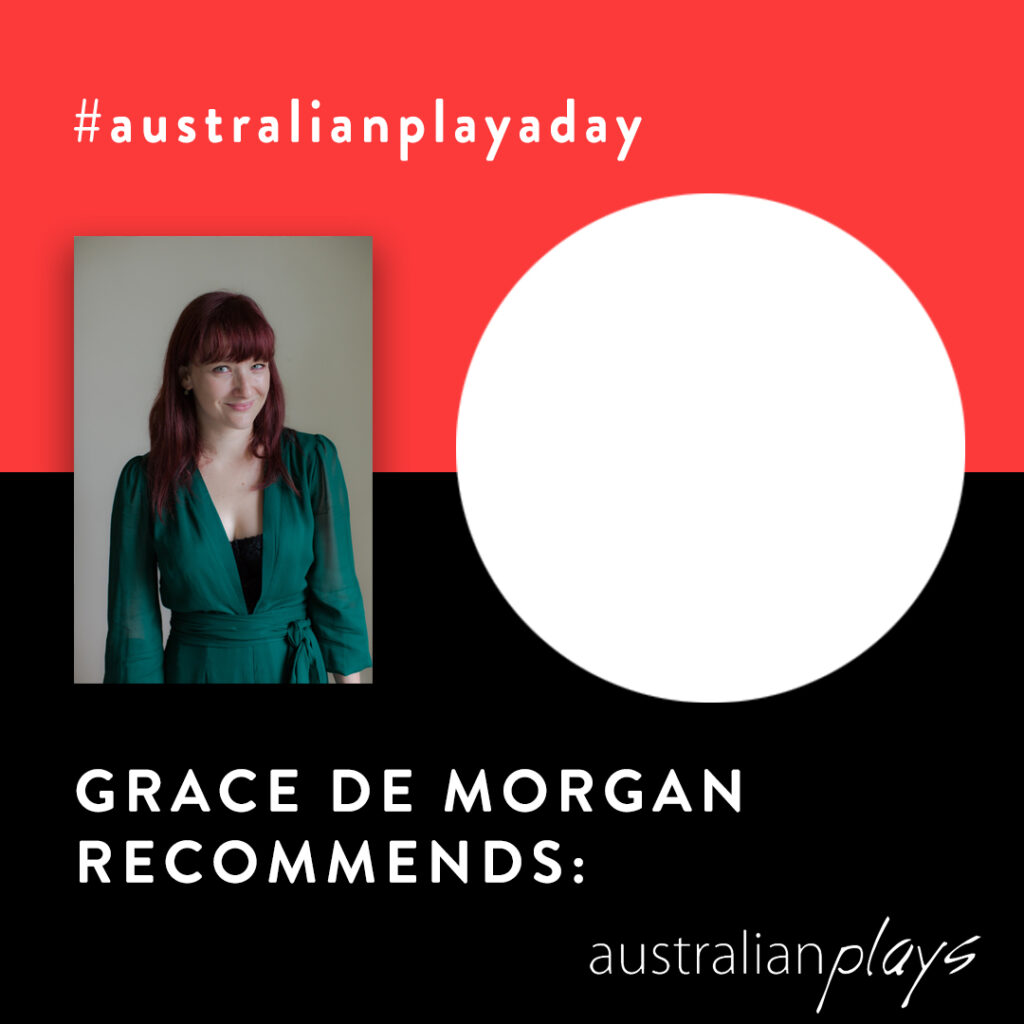
Moths
Michele Lee
I saw ‘Moths’ performed at the National Play Festival 2014 and it still sticks out as one of the best readings I’ve been to. The way Michelle weaves together her interviews with young Asian Australians is darkly funny and affecting. Waiting patiently for this to be programmed on a main stage (post-COVID19).
Impending Everyone
Michael Andrew Collins
I love how Michael writes for young people. He writes with intelligence and humour and balances his ensemble cast really masterfully. I like how the script juggles big issues – like adolescence, technology, privacy and porn – without feeling stretched.
Bright World
Elise Hearst & Andrea James
I really enjoyed seeing this at Theatreworks and would be keen to read it. The way Elise and Andrea embrace the tension between their backgrounds and explore the legacy of First Nations activist William Cooper is both compelling and hilarious.
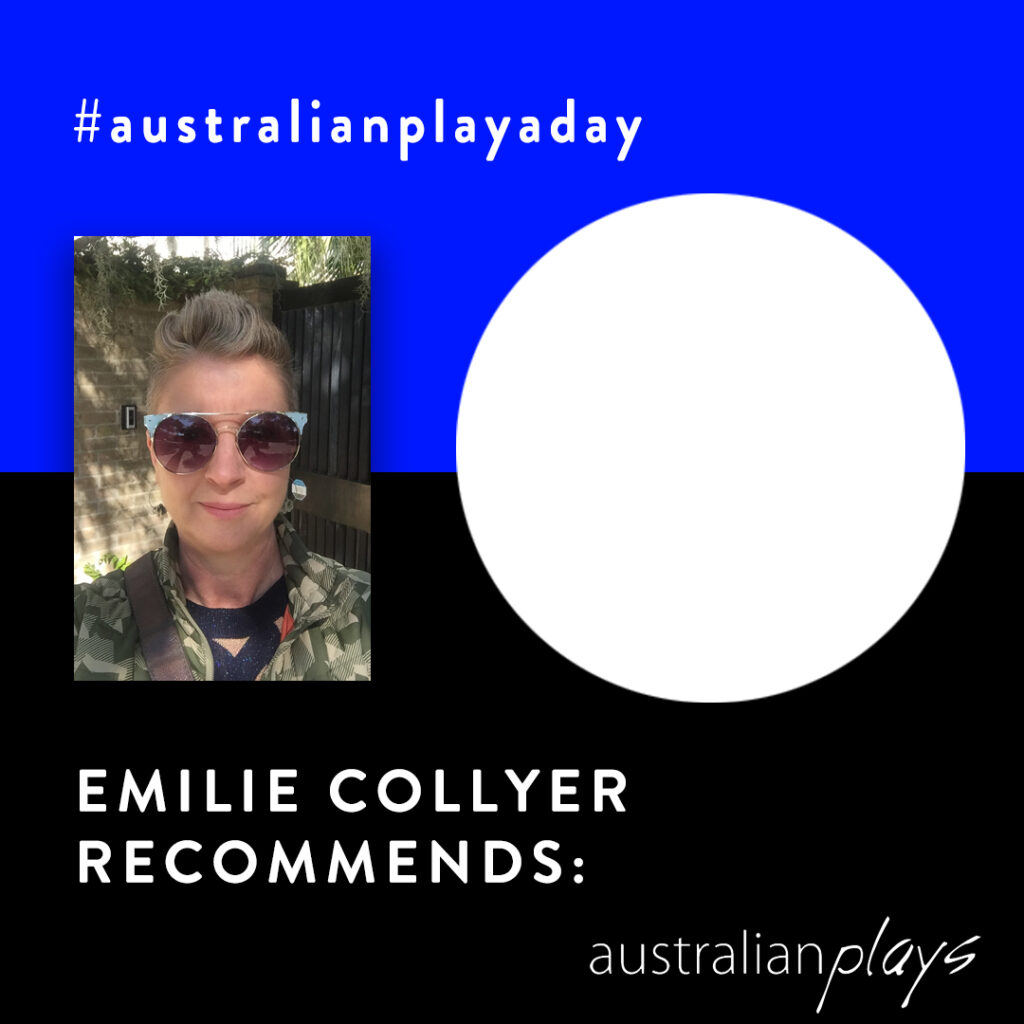
Stolen
Jane Harrison
Jane wrote this play that spoke to the heart and pain of the Stolen Generations in such an extraordinary way. I re-read it recently and was again struck by the poetry, poignancy, humour, elegance, intelligence and most of all the incredible alive-ness of the writing. It is absolutely one of this country’s most significant plays and pieces of literature ever produced.
They Saw a Thylacine
Justine Campbell & Sarah Hamilton
I have such strong memories of seeing this play at North Melbourne Town Hall during Melbourne Fringe Festival. The quirkiness and specificity of the language and those two magnetic characters. The unusual subject matter and how the play curled in and around so many subjects and was kind of sneakily feminist (in the very best way) and just such bloody good, entertaining, rock solid story telling.
Going Down
Michele Lee
I love this hilarious and super clever play by Michele. It has so much heart and some of the funniest writing for stage you will ever read / see / hear. I think it offered something completely new in terms of its insights about being an Asian-Australian writer in this very white-dominated culture and also spoke to the literary scene in Melbourne in such a fresh and sassy way. It is pure, smart, shiny joy.
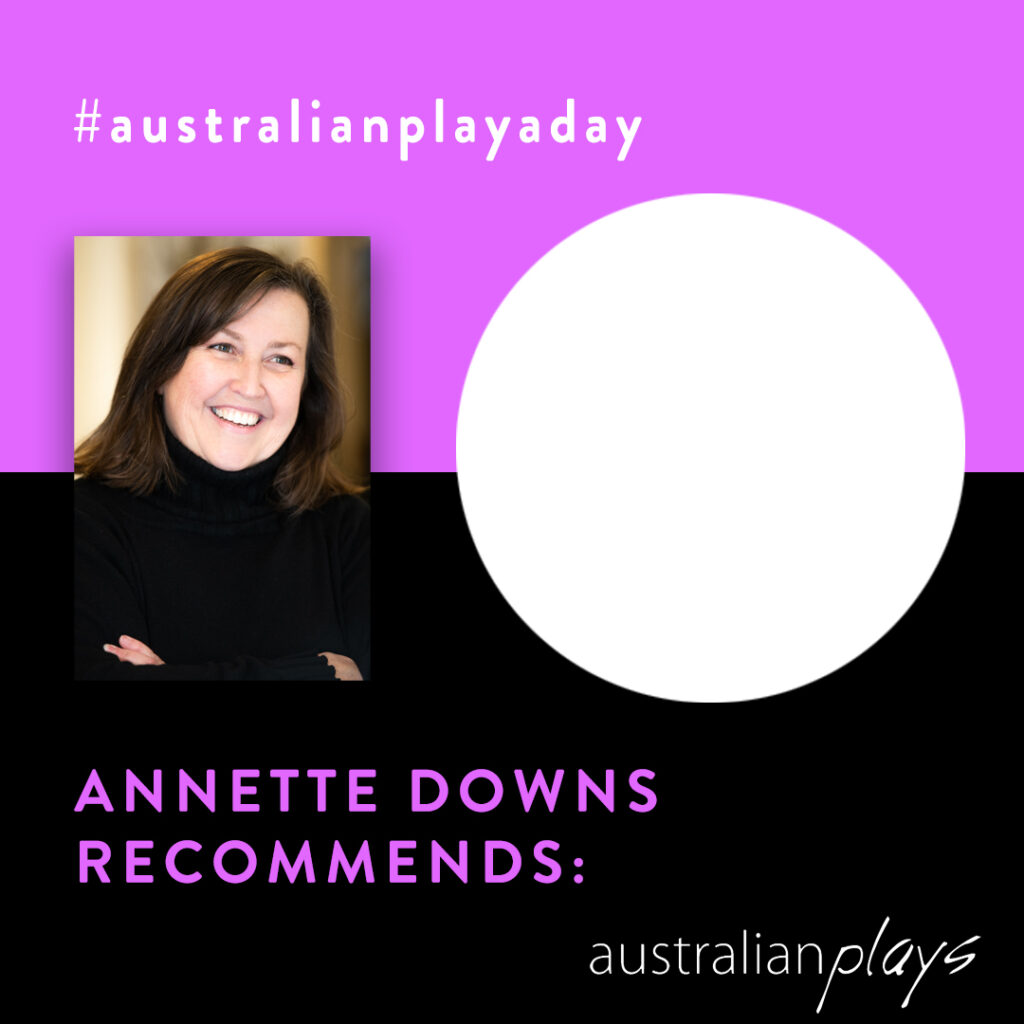
The Season
Nathan Maynard
After living in lutruwita /Tasmania for the past 30 years, I cannot help but choose this landmark first play by palawa artist Nathan Maynard. The story follows the usual chaos that occurs when an extended family gathers for an annual event. In this case, the setting is the cultural practice of the Mutton Bird season on Big Dog Island in the Bass Strait. The play shines a long-overdue light on the depth of culture, and cultural practice, amongst the palawa people and the unique love of a family. This work won Nathan the Green Room and Tasmanian Theatre Awards for best new writer.
Beyond the Neck
Tom Holloway
This play was written at the very start of Tom’s playwrighting career. It was his response to the mass shooting that occurred at Port Arthur in 1996, taking 35 lives.
As a young man living in Tasmania and working in a café at the time, he personally needed to process the impact of that event. He went on to interview many of the survivors to inform the content of his play. From an unspeakable tragedy, he created this beautiful and powerful work that I’ve always thought reads like a musical score.
The Bleeding Tree
Angus Cerini
Argh someone else picked it already…still one of my favourite plays of all time.
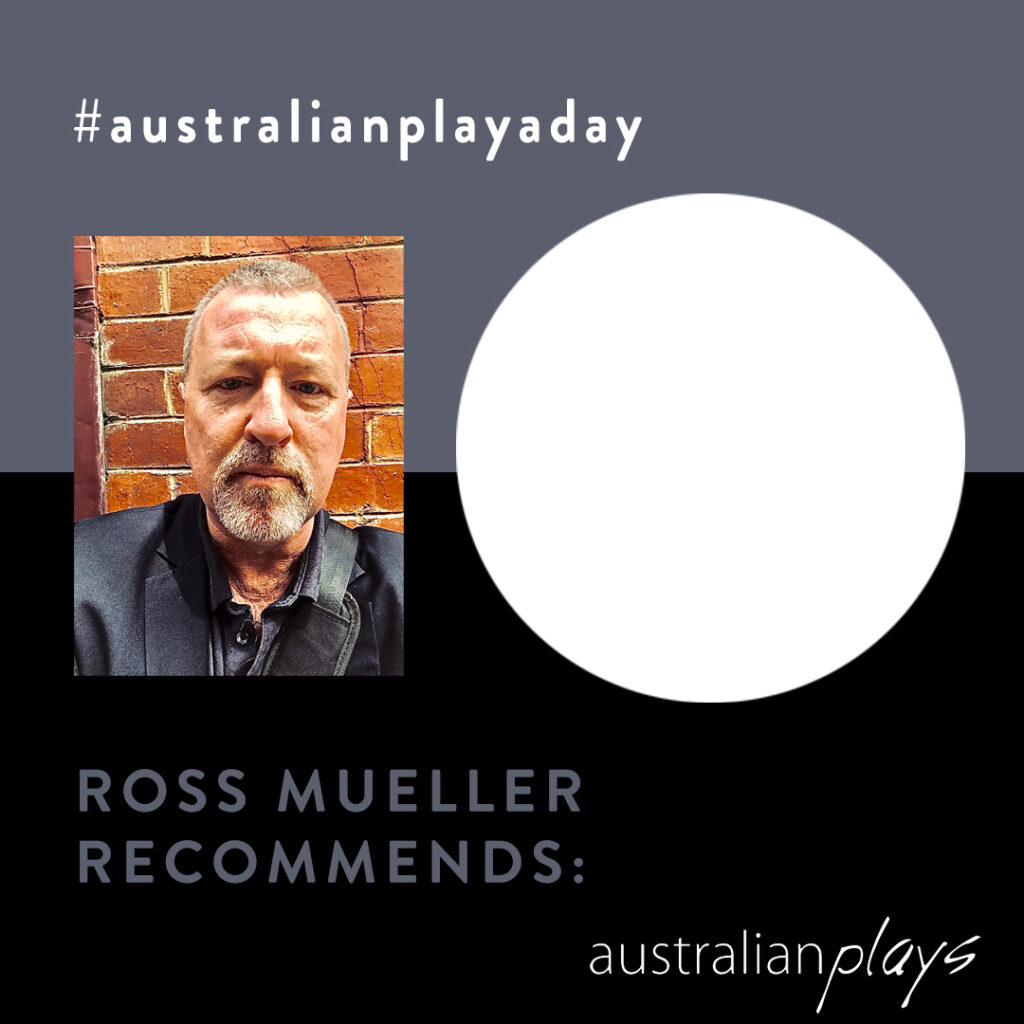
Checklist of an Armed Robber
Vanessa Bates
I saw this play at the Trades Hall in Melbourne. Chris Bendall directed a cracking production. I was amazed at the voice of the writer and the entanglement of Australia and an international incident. It reminded me that we can be Australian, we can be regional and we can still have something to say. It is an exciting play and written so clearly to be performed. Vanessa Bates was a writer I had to know more about.
Truck Stop
Lachlan Philpott
I read this play and was so impressed with the urgency of the text. Lachlan is a gifted dramatist and I was transported to the world he created. It is an important play from an important writer.
Prima Facie
Suzie Miller
This is the completion of a journey. What a fantastic monologue. The story is great and the voice is authentic. I loved seeing this play and it was supposed to tour and be re-produced around the country this year. Even a Pandemic will not stop the future life of Prima Facie.
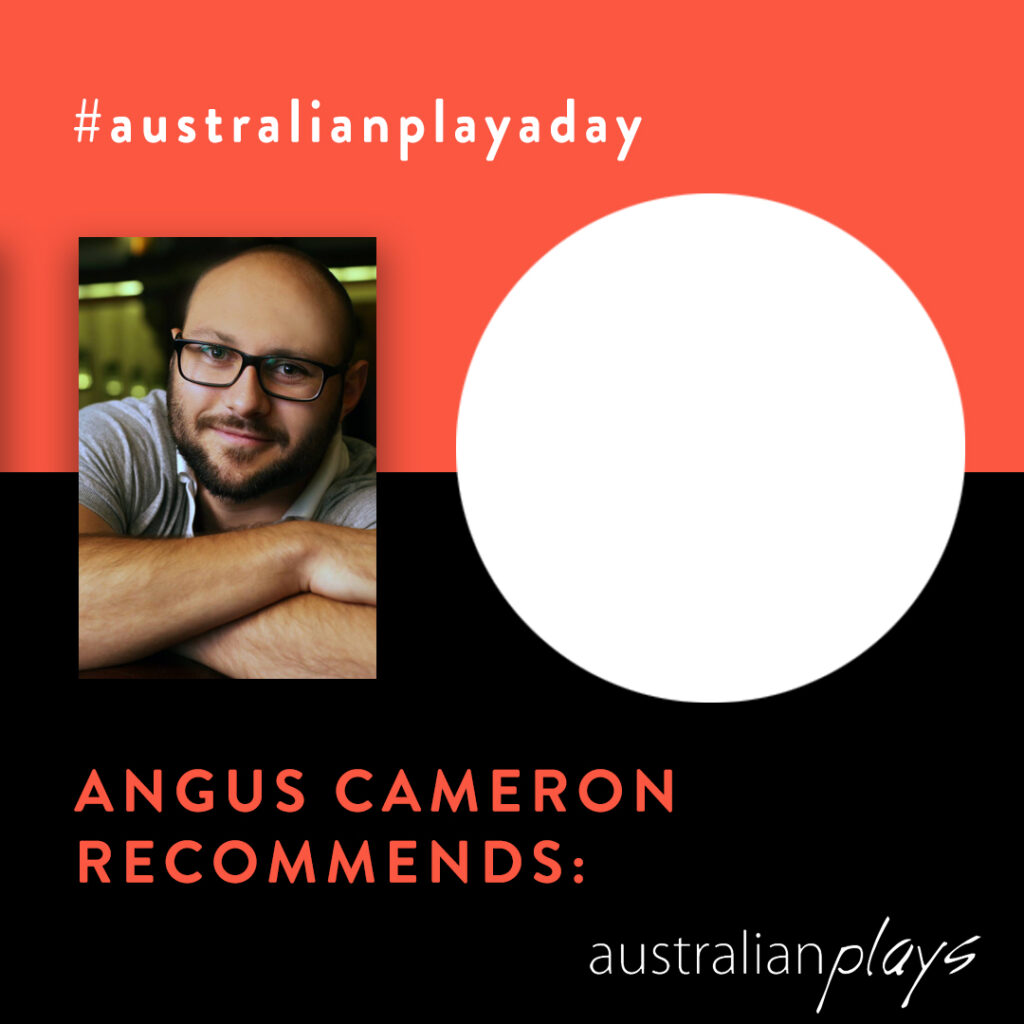
The Drover's Wife
Leah Purcell
This play is a fucking gripping read. It’s like a snakebite to your leg and an adrenalin shot to your heart; it left me almost crying in a café. It’s fast, brutal and beautiful. It’s being turned into a film, so now is the time to jump on the bandwagon and it’s pretty straightforward to follow on the page.
The Unspoken Word is 'Joe'
Zoey Dawson
Have you ever wanted to imagine a play that’s actually a playreading but also it is a play because what else is it? I don’t want to misrepresent it though, it’s actually neither playreading nor play, because you’re reading it and imagining it, it’s not real! Is that what you want in your life? If yes, maybe this is the play for you! It’s about a break-up, but not really, it’s about Zoey. But she’s not in it. You’re the one reading it! You’re in it! Surprise! Jokes, she’s definitely there. In your house! Just kidding. It’s really good. One of my favourites. Don’t take my word for it though, you don’t need to, lots of people really liked it! No pics. Take my word for it. You might like it too!
Eight Gigabytes of Hardcore Pornography
Eight Gigabytes of Hardcore Pornography
Declan Greene
One time I made my two housemates read it out loud to me while we drank red wine at about 3am — they ended up in a relationship and it broke up the household.
Are you looking for self-destructive tendencies, tender ugliness and a generous study of lonely mediocrity? Read this play!
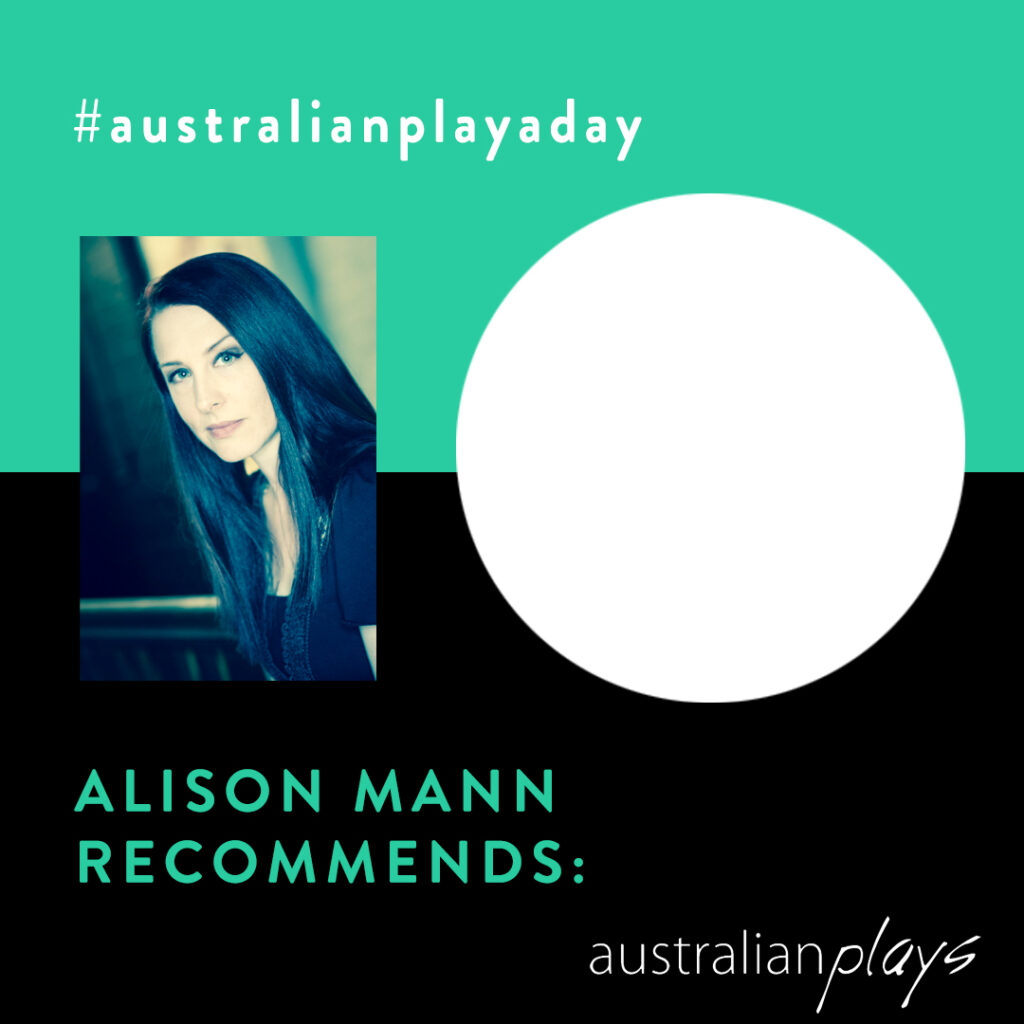
War Crimes
Angela Betzien
War Crimes by Angela Betzien is fast, furious and breath-taking. In a small coastal town in Australia a group of six teenage girls grapple with belonging, identity and trauma. A perfect storm escalates in the town after a series of events: a local soldier is killed in Afghanistan; jobs become scarce and an Iraqi refugee family move into the town. With boldly drawn characters, that pulsate with anger, loyalty and hope, War Crimes is a vividly drawn portrait of contemporary Australia. I was enthralled by this play on my first reading.
The Seed
Kate Mulvany
The Seed is a beautiful play that tells a story of a family that’s been impacted across three generations by war and violence, from the ‘troubles’ in Ireland, to Australia and the Vietnam War. It explores very personal and national tragedies. It’s a family reunion tale, following a grandfather, father and daughter. It’s bold and economical use of language packs a heady punch. I recently re-read this play after seeing a production of Kate Mulvany’s searing new play The Mares in Hobart last year. I’m a huge fan of Kate Mulvany’s work.
I Love You, Bro
Adam JA Cass
I Love You, Bro by Adam J.A. Cass explores the world of Johnny, a fourteen year old boy, who is rummaging through the internet in search of friends and possibly love. Johnny finds a connection with MarkyMark online, only to discover MarkyMark is a sixteen year old sports jock at his school. To further his relationship with MarkyMark, Johnny creates a female persona for himself online. From here ensues a wild ride, where fantasy and reality blur, connections are made and destroyed, and actual real world violence looms large. The play is based on real events that took place in Manchester in 2004. It is both deliciously funny and shocking. Form and content fuse beautifully in this one person play. I love the play’s visceral, raw quality, of the possibilities and repercussions of life lived in the real and digital world.
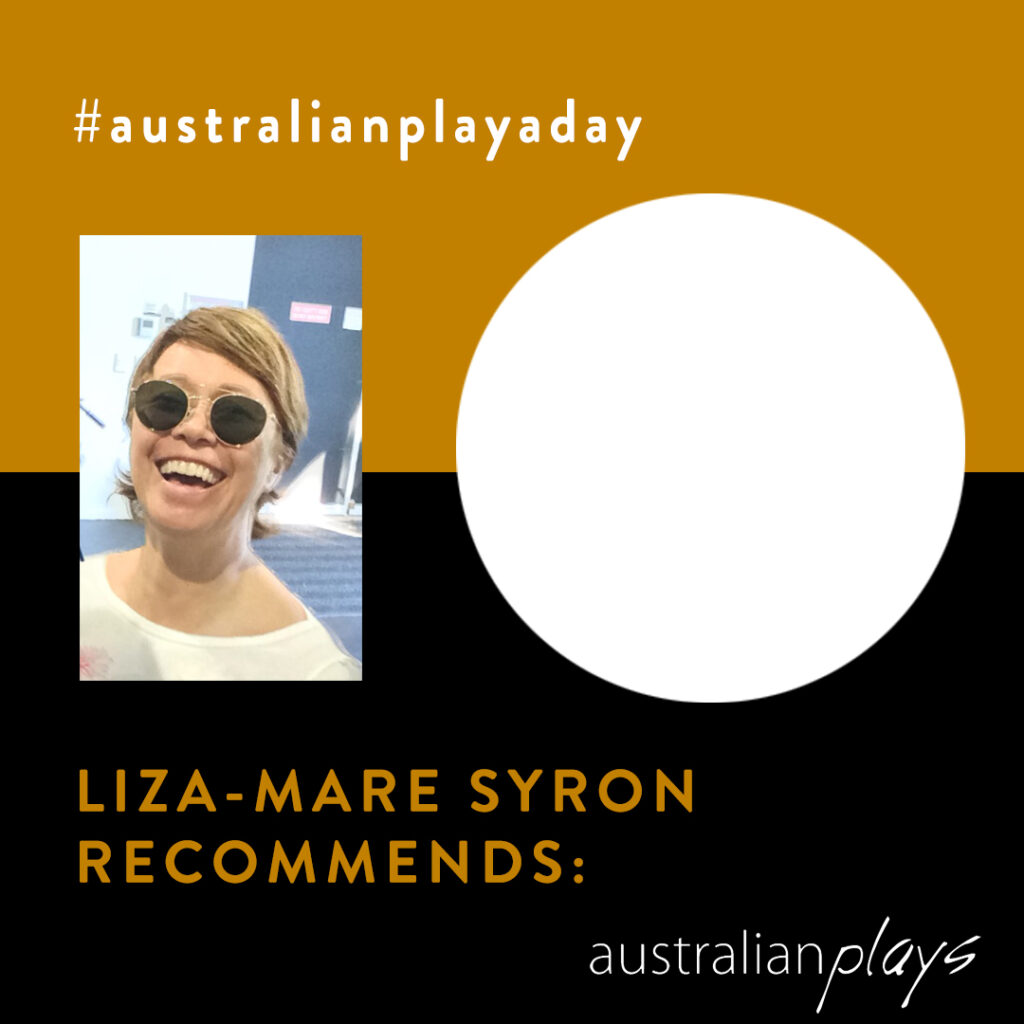
The Cake Man
Robert Merritt (Wiradjiri)
Of course I was always going to choose this play as my number one pick.
It is a classic of the canon and I saw this with my father when I was very young. Every time I read this play, hear a reading, or see a remount of the show, I am still transported to an era in our history to remind me of the very human experiences of mission life in NSW. The devastating affect of colonisation on family is so poignant in this work, as is the weight of subjugation on the human spirit.
This play was the catalyst for a new era in Australian stages. I will always see Brian Syron as Sweet William and Justine Saunders as Ruby.
The Brother's Wreck
Jada Alberts (Yanyuwa/Larrikia/Wadaman)
I first heard this play when it was first presented at the inaugural Yellamundie First Peoples National Playwriting Festival at Carriageworks Sydney in 2013. It was called Weight then and then renamed for the next development as part of Jada’s Balnaves fellowship at Belvoir Street Theatre. Francesca Smith was the dramaturge who worked with Jada on Weight, and then the Belvoir Street director Leah Purcell both bringing so much gravitas to the development process that this play could not be anything other than great. It is a play that confronts the human fragility surrounding youth suicide and its affects on Aboriginal families and community in such a nuanced way that it does not ever leave you.
The Promise
Jadah Milroy (Palku)
In 2010 I was working at the Eora Centre of Visual and Performing Arts in Redfern as Head of Theatre and looking for an end of year play to produce with the students. I really wanted to do a musical theatre piece and I went searching in the Australian Plays archives and found this work. I have never seen it professionally produced, which is a shame as it is a great magic realism fantasy play interspersed with songs. It is a story about mental health and the struggles that Aboriginal women sometimes navigate in their early twenties around their identity and modern society in Australia. The protagonist is a young woman who is pregnant and has lost her husband. She seeks medical assistance for her anxiety issues and is plunged into the spirit world on a quest to reclaim her sense of self and meets with both benevolent and menacing shadows that sing her along the way.
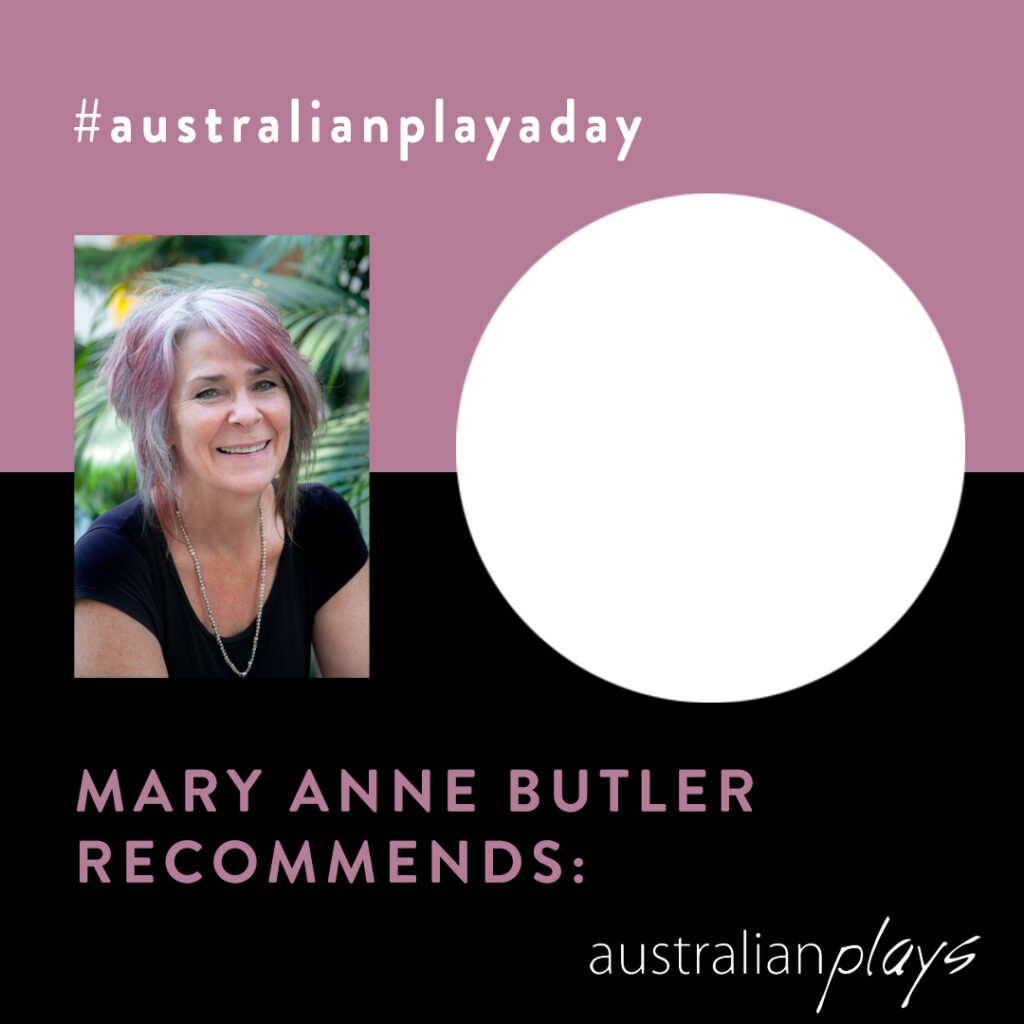
The 7 Stages of Grieving
Wesley Enoch & Deborah Mailman
Exquisitely condensed, highly visual and incredibly moving, Enoch and Mailman offer up a masterclass in ‘Show me, don’t tell me’ in 24 stand-alone scenes: some told in English, others sung in Language, with each packing a powerful emotional punch. Scene 11, entitled 1788, reimagines Cook’s invasion: “Oi! Hey you! …with that hat… You can’t park here, eh! You’re taking up the whole bloody harbour! Just get in your boat and go. Go on, go on, get!” Scene 14, delivered ‘in the style of a court report’, replays the incarceration and death in custody of Daniel Yocke. It’s gut-wrenching.
Home Story rips my heart out entirely. The Woman uses piles of sand to illustrate the intricate interconnections between Aboriginal “…family culture and language” systems, checking with us to see that we’re following: “Are you with me?” But eventually even she gets confused, and the scene ends with her flaying her arm through the piles, annihilating these sophisticated networks with the line: “Now imagine when the children are taken away from this. Are you with me?”
The 7 Stages of Grieving holds us close while it asks us to sit inside vast spaces of infinite grief, in an intimate search for healing. It’s life-changing.
See-Through
Ciella Williams
Following their violent deaths at the hand of an abusive husband/father, the ghosts of a young Mother and her Daughter are trapped inside their crumbling block of flats. The Daughter is desperate to leave this place where: “all of me is wrong… It’s burning, burning, cutting me.” She wants to escape to ‘Light Land’, where there is some kind of hope. But her Mother refuses. She’s waiting to find love; to be ‘seen’. She’s sure that’s nearby, she just has to wait.
Two talking peacocks provide an insightful chorus: “How do you explain to a child /That you haven’t felt solid / In as long as you can remember?” while Cockroach Man watches on; infatuated with the Mother, but utterly uncapable of talking to her. He ate their corpses. He knows their hearts. But he doesn’t know his own:
Courtship is a funny thing
Sometimes you jump in
Rip your chest open
Stand with rib cage splayed Lungs pumping
Giddy. Eager.
…And sometimes
You’re not ready at all
Sometimes you’re pushed.
A darkly magical celebration of the people that society forgets, See-Through by young Darwinite Ciella Williams is fierce, magical, poetic, hilarious, epic in scope and constantly surprising.
Hoods
Angela Betzien
Two actors morph into 26 characters in a poetic, evocative, fractured narrative which tells the story of two kids stuck in a lower class trap, with only their imaginations for escape. Abandoned in a car at a shopping mall, Kyle and Jessie do their best to look after their baby brother Troy, while being utterly unequipped to do so.
The action in Betzien’s “cemetery of stories” is controlled by two ‘Hoods’ who stop / start / replay / rewind the action of the play, X-Box style:
“…we are ghosts of past present and future
We sew the sutures
Of time.”
Betzien’s non-linear structure and rapid fire action makes for a breathless read. Stakes are incredibly high, engendering empathy. While Kyle and Jessie wait for their mum to return:
“One a.m.
kids in the car
they
sleep
masked
by night’s thick blanket.”
And old man nearby “…mutters madness into his multiple chins / Raving repent repent repent or burn for your sins.”
Betzien is a master storyteller, and one of our finest playwrights. Winner of the 2007 AWGIE for young audiences and the Richard Wherrett Award for Excellence in Playwriting, Hoods is an important, evocative, highly charged two-hander which remains vital over a decade after it was written.
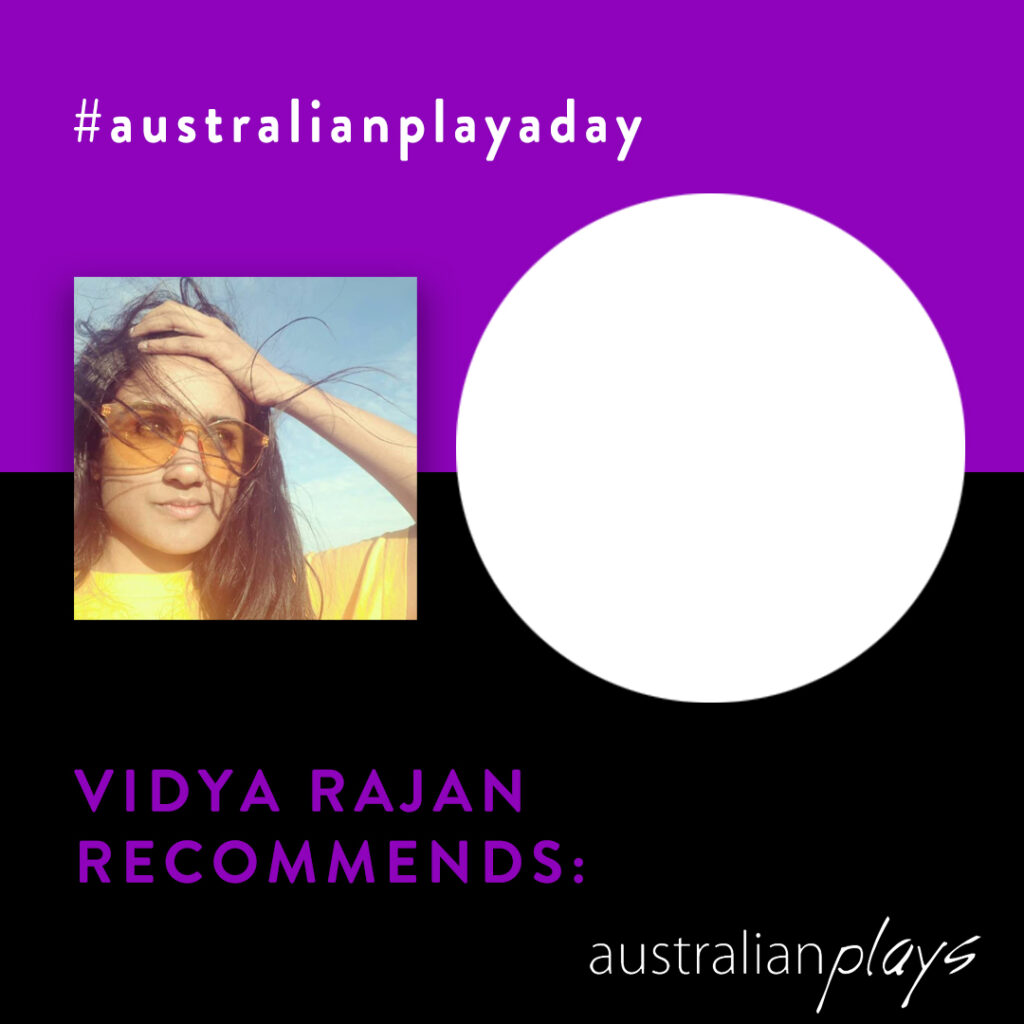
Virgins And Cowboys
Morgan Rose
Morgan Rose is one of my favourite local writers. With a background in devised performance, her work always feels made for live experimentation. Though narratively one of her more traditional plays, Virgins and Cowboys is incredibly contemporary, set in an online space and following a 20-something dude who wants to bed a virgin. It’s funny, sad, and weird. Women writing about gross masculinity is always a treat and this play does it with force and playfulness.
Love
Patricia Cornelius
The first Cornelius play I read. It depicts people in great distress, on the margins, as both awful and tender at once. Circumstances and characters that might come across as cliché just feel real and urgent in this play. It’s socially realistic writing that’s deceptively sparse, and it zips along with such ease that you don’t realise the knife’s been stuck in.
Ode to Man
Emma Mary Hall
Emma Mary Hall is a performance artist and writer. She often works with lists and material from her life, sculpting the work into something that accumulates emotionally. Ode to Man is a work in fragments, but each part helps us understand what it feels like to be alive in Emma’s body at this point in time, in this society, as a woman. It’s honest, wryly funny, and inventive writing for performance.
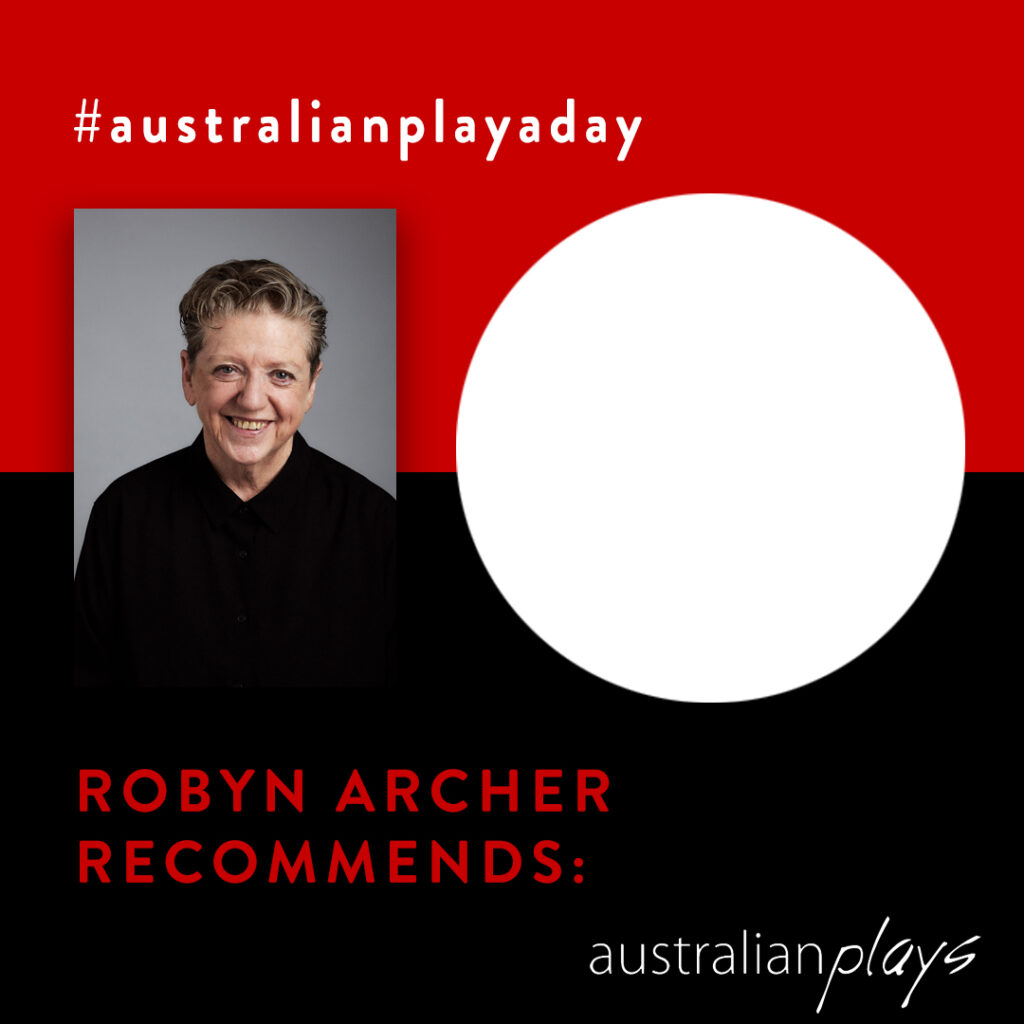
Cold Light
Alana Valentine
This play and its trajectory reveal the often long process of gestation for a new work. As Creative Director of the Centenary of Canberra (2013) I determined that the year-long celebrations would include, alongside sport, architecture, design, science and multiple community projects, artistic content by only Australian artists. I became more familiar with Frank Moorhouse’s epic ‘Edith trilogy’ set in the national capital, and Caroline Stacey, artistic director of The Street Theatre, was aware that Frank had expressed interest in a dramatized version of the three books Grand Days, Dark Palace and Cold Light, which portray the adult life and intriguing public service career of Edith Campbell Berry. Caroline began the dialogue and researching the most appropriate playwright to bring in to the project. In 2013, the Street presented a rehearsed reading of Cold Light, the work to date of an intense collaboration between author and playwright. It made a terrific contribution to the year’s program, and we all had great hopes for its future. Slow forward to March 2017, and at last Cold Light sees the light in a premiere production directed by Caroline at The Street. What I love about the arts is that any one work can lead you to any number of others – in this case to Frank’s amazing output (including the films he’s been involved in), and, of course to Alana’s extraordinary oeuvre.
When the Rain Stops Falling
Andrew Bovell
In my 2000 Adelaide Festival I decided to commission many new works to ring in a new century. This included Brink Productions, the company created by graduates of Flinders University Drama Centre. Michaela Cantwell, Lizzy Falkland, Victoria Hill, Richard Kelly, David Mealor, John Molloy, Paul Moore and Benedict Andrews had founded the company, largely to keep themselves in work and Adelaide in fresh new productions. By 2000 the ongoing collective was ready for something more ambitious. The project was a collaboration with British playwright Howard Barker and his UK company The Wrestling School. The Ecstatic Bible was rehearsed in two countries, premiered at the 2000 Festival and then in the UK.
Since 2004 Chris Drummond has been artistic director of the company, and has insisted on long intense developments of new work. Recent triumphs include Memorial for the Adelaide Festival and London’s Barbican, with a remarkable central performance by Helen Morse, and The Aspirations of Daise Morrow, the adaptation of a Patrick White short story. The latter featured the late great actor Paul Blackwell – as did When the Rain Stops Falling, a typically sparse but eloquent work by the prolific Andrew Bovell (recently writing Anthem in concert with Patricia Cornelius, Melissa Reeves and Christos Tsiolkas). The play is about climate change but in a highly original and poignant context, and constructed in an equally rare collaboration with artist/designer Hossein Valamanesh. Read all you can of Andrew’s beautiful work (his film work too). And happily I confess to being the Patron of Brink Productions, in addition to my Patron role with Australian Plays.
The Architect's Walk
Daniel Keene
I was attracted to Daniel’s writing the first time I encountered it, and was proud to include this play in my 1998 Adelaide Festival. I’ve been interested in architecture since a kid, and it surfaces in my own works – most recently Picaresque for the 2019 Adelaide Festival, where my ‘set’ was comprised of around 200 assembled cardboard maquettes (around half my collection) of buildings from around the world, and in 2007, my play Architektin about Vienna’s first woman architect (State Theatre SA’s premiere production had the brilliant Helen Morse in the lead role).
Daniel’s play is about Hitler’s architect Albert Speer and shows the playwright’s ability to see a more humane side to a character whom history has condemned to be viewed as monster by association. Like Brecht, living in the worst of times, there was always bad in the good, and good in the bad. For instance, I learned recently in Helsinki that national hero architect Alvar Aalto had, albeit reluctantly, spent time in Berlin as Speer’s guest during the war. The Architect’s Walk also demonstrates a continuing fascination for architecture, or its politics, in many different artists. I think of Ibsen’s The Master-Builder or the film adaptation of Ayn Rand’s The Fountainhead, or the work I commissioned in 2013 from choreographer Garry Stewart, designer Mary Moore and the Australian Ballet ; Monument was about Aldo Giurgola’s design for new Parliament House in Canberra. It is so odd that till last count, Daniel’s plays are still more regularly performed outside Australia, especially in France, than here. Read this one, then all the rest, and let’s see more of his work in our theatres – when they open again.
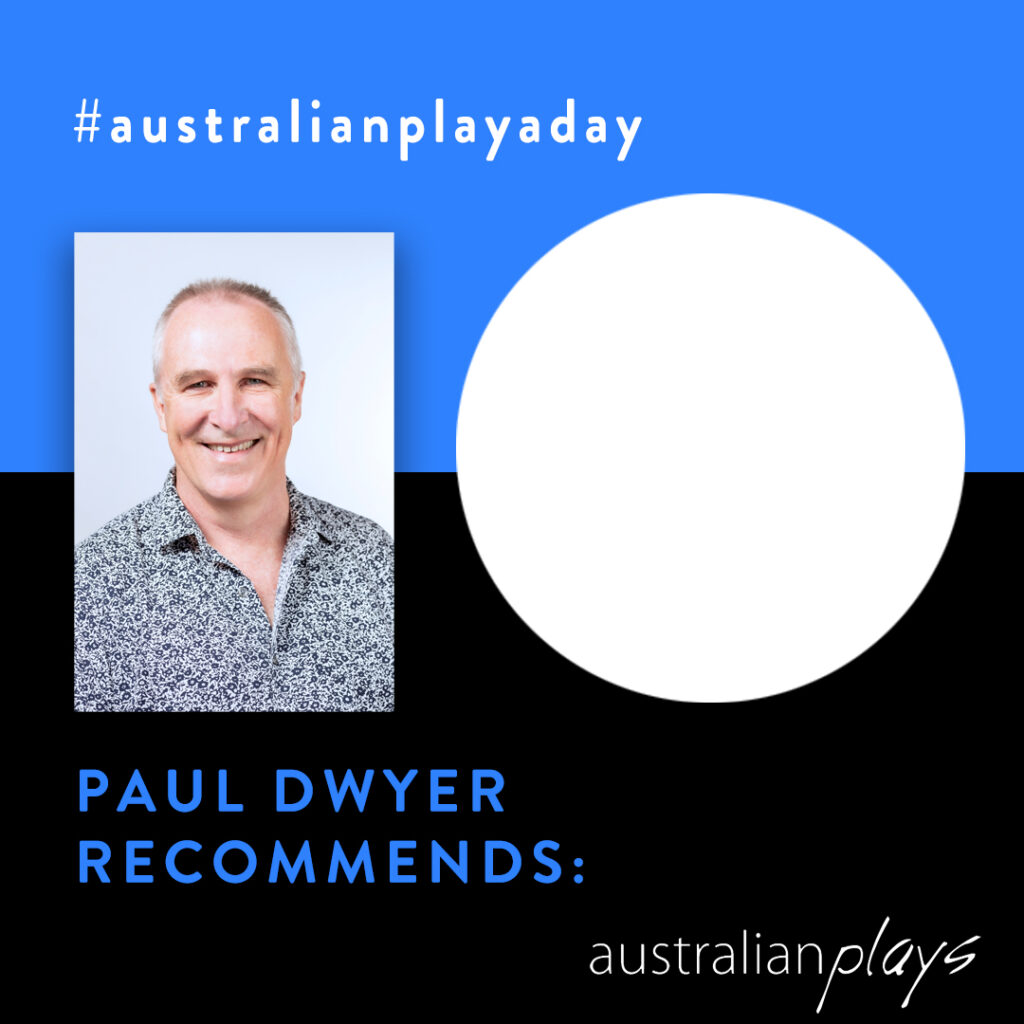
Stories of Love and Hate
Roslyn Oades
In recent decades, so many artists have turned their hand to so many different forms of [INSERT PREFERRED TERM HERE: Reality Theatre? Documentary Theatre? Verbatim? Non-Fiction Theatre? Other?] but Roslyn is one of the very best. This is deep listening in practice, from the initial seed of the project through to the audience’s experience of it. I love the determination to include voices that come from so many different places to reveal the tectonic movements of culture that can produce something as vicious as the Cronulla Riots but also so many things of beauty and hope. Roslyn talks about trying to honour the “voiceprint” of each speaker in the original interviews from which she assembles an intricately layered, composite recording that the actors relay to the audience via a “headphone verbatim” technique. She understands so well that verbatim-like forms are about the about the ‘facticity’ and not just the facts, about the texture of talk, not just its ideational content. Those moments where casting of the actors works against age, gender, type, and ethnicity (eg. the voice of a white teenage surfer dude coming out of the body of Katia Molino, a brilliant actor of Italian heritage) are just magic. ‘Brecht 101’ and then some: making the familiar deliciously strange.
The Bleeding Tree
Angus Cerini
I was lucky enough to see the premiere production in 2015 at Griffin Theatre: one of the most extraordinary openings ever on a stage that has ushered in so many other great Australian plays. Such a perfectly taut and trim work. Just as long as it needs to be and no more. Not a word out of place. So concentrated. So brilliantly structured (and directed by Lee Lewis). Angus’ note tells us that the characters are “three women [playing] a mother and her two daughters” but the stage is actually packed with so many other voices conjured up by these characters: friends of the missing husband/father, the postie, the policeman… All these voices that seem to reek of patriarchal anger, violence, resentment, complicity, and entitlement but without any man ever appearing on the stage. All of the men’s words carefully weighed up and uttered by the women in their recounting and re-enactment of a passionate, brilliant struggle to survive. Words that roll around in the women’s mouths, fly around the space, sometimes spat out with anger, sometimes dropped derisorily. Never drowning out what it is that these women have to say for themselves. And the coup de théâtre at the end when you realise that, on this occasion at least, the women have been heard and are understood.
The Drover's Wife
Leah Purcell
I remember gushing to a colleague, the day after I saw this play at Belvoir: “I think I now have some small idea of what it might have been like to watch Helene Weigel smacking a post-war East Berlin audience in the face with her portrayal of Mother Courage.” I still deeply admire the epic scale of this work and remember the sheer ‘eventness’ of that 2016 premiere production. I love the fact that Leah just wouldn’t let go of her childhood memories of the original Henry Lawson story after which she has fashioned her play. She understood deeply that other voices and histories were implicitly being written into and out of Lawson’s colonial bush nationalism. She grabs one loose end and pulls a whole new view of the world out of that old story about a snake under the house (and its fleeting reference to “Black Mary, the ‘whitest’ gin in all the land”). It’s such a brilliant act of reappropriation and such a visceral examination of how the protagonist (with great difficulty and at great cost) ultimately claims her Aboriginality as part and parcel of fighting for her rights as a woman, a mother, a worker… Blew me away.
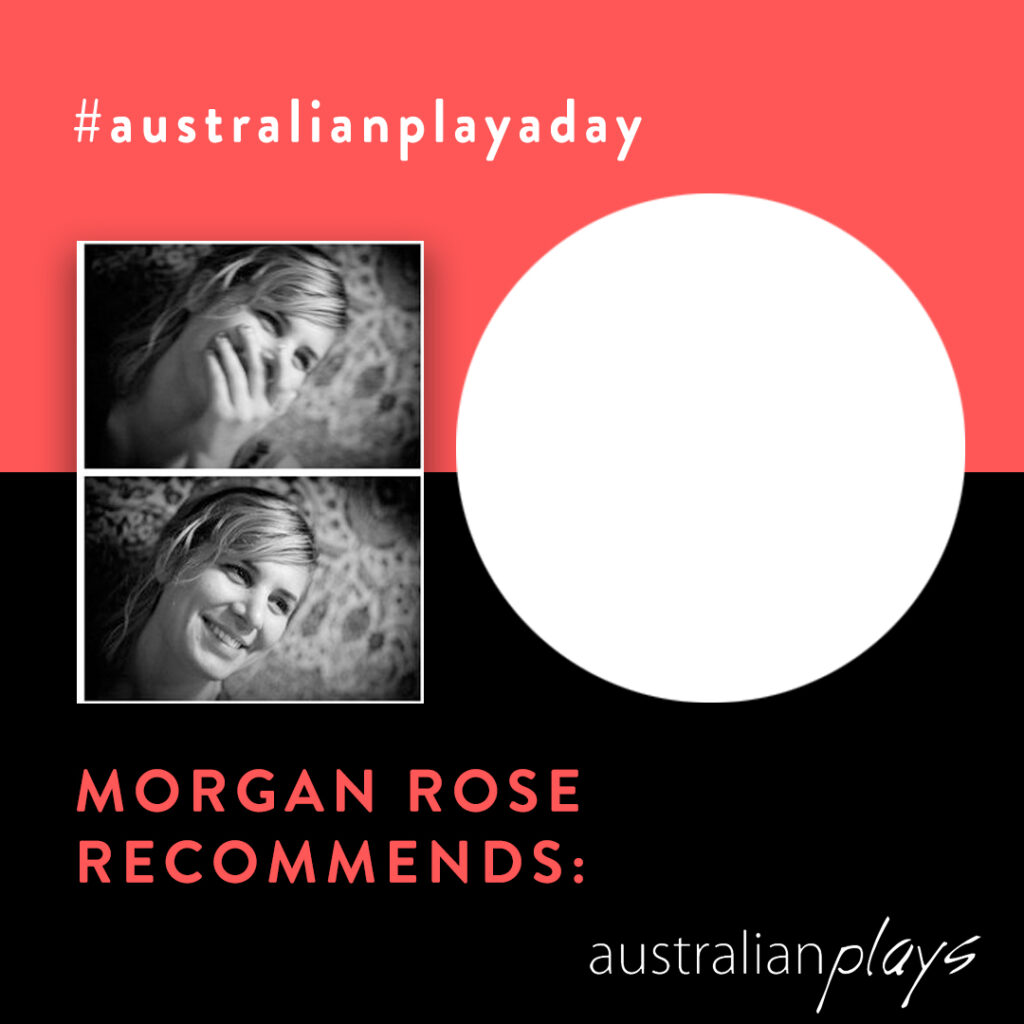
Coloured Aliens
Chi Vu
Chi Vu can do everything: bizarre image based promenade works, audio based live art works, and this— a play about racism that is light and funny but also says all the things and says them hard. It sounds impossible, but she’s done it.
Shoutout: Beng Oh’s direction of the premiere of this work at La Mama was truly inspired.
World Problems
Emma Mary Hall
After seeing any of Emma Hall’s work I find I need to take a walk around the block and not talk for a while. I suddenly feel achingly in control of the fate of the world. I suddenly consider every step I take. It hurts in a way I don’t get to experience often.
Younger and Smaller
Amelia Newman
This play is weird and curly and says so much about being young in this moment without actually pointing at it directly. Amelia is the next gen theatre maker. They have a lot to say, and a way of saying it that I haven’t heard before.
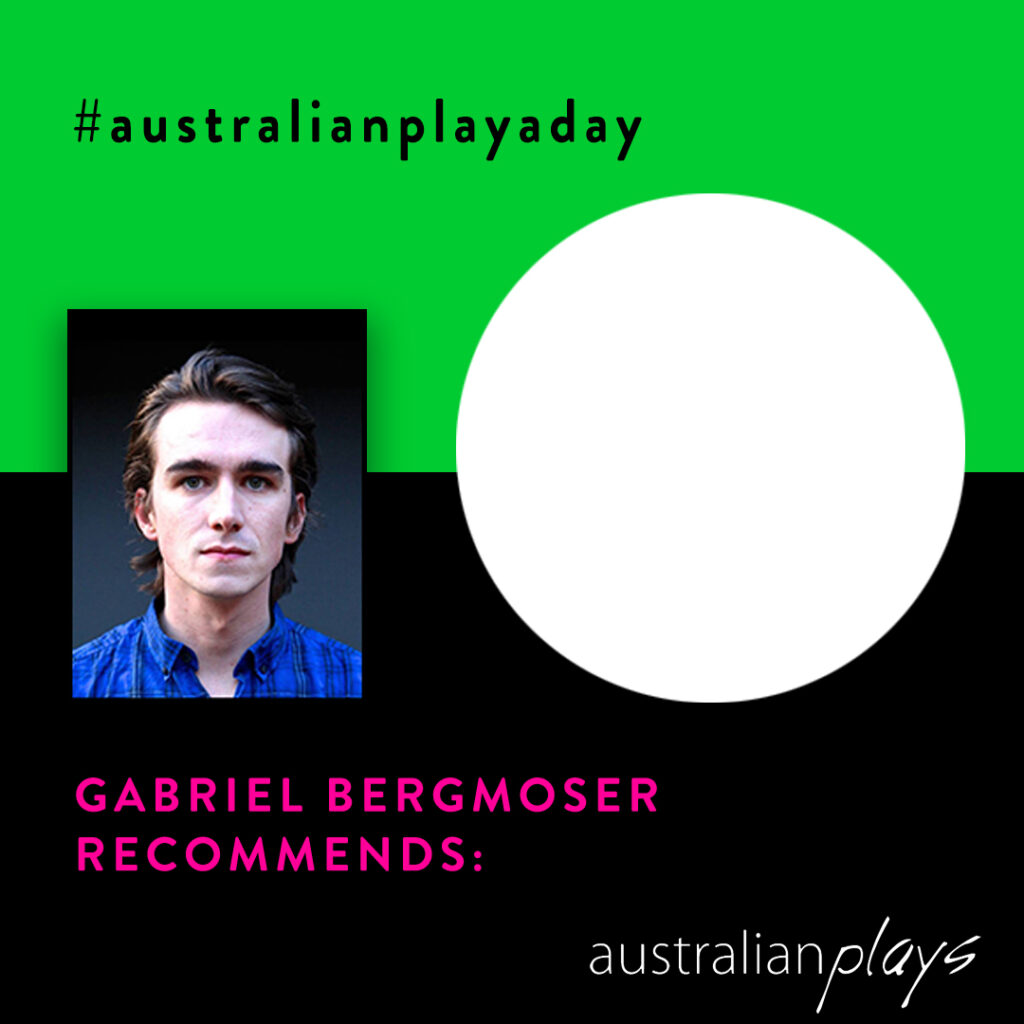
The Golden Age
Louis Nowra
The Golden Age is one of those plays that combines being dense, complex and uncompromising with being absolutely gripping. Often overshadowed in Nowra’s oeuvre by the more ubiquitous and accessible Cosi, The Golden Age challenges the audience to interrogate what Australian culture really is, and if the answer is worth celebrating. It wraps difficult questions in the guise of the fascinating, possibly true story of a tribe descended from escaped convicts discovered in the Tasmanian wilderness in the 1940s, living with their own language and culture that becomes corrupted and destroyed when those who discover them decide to bring them back to civilisation. The Golden Age, with its frank depictions of barbaric medical treatments and wartime atrocities, is not an easy watch but it remains an extremely compelling one that has become more relevant by the year. Still my all-time favourite Australian play and one of the first works that showed me what theatre was capable of.
When The Rain Stops Falling
Andrew Bovell
I first saw When The Rain Stops Falling at MTC in my last year of high school after sitting two final exams that day. I was so worn out I actually gave myself permission to fall asleep in what I had been forewarned was three hours long and very complex. It didn’t take long for me to realise how unlikely that was. The play unfurls multiple threads of one family’s tangled and sometimes harrowing history, moving deftly between the distant past and the near future as it charts the ways in which the mistakes of history can echo through the years and corrupt the present. That such a sprawling play can feel so intimate is an absolute feat of storytelling, along with the way it drags you closer and closer to the edge of your seat with every passing second. There is one moment in this play that I will remember for the rest of my life, a twist of such inevitable devastation that turns a family saga into something akin to psychological horror, something that to this day gives me chills when I think of it. Impeccable, exemplary storytelling.
The Return
Reg Cribb
The Return sits somewhere between a page turning thriller and a gut-wrenching social drama. It starts simply enough; a young woman gets on a late-night train occupied only by two roughnecks. Teasing banter turns ugly. Then more people get on board and the whole thing transforms. Twists that would strain credulity if they weren’t so expertly seeded propel The Return from danger and suspense to something a lot knottier, something rife with melancholy and a bitter understanding of what class divides and societal expectations can do to people. That a narrative taking place in real time in one location with a cast of five can be so unpredictable and electrifying has for a long time been a source of inspiration for me. The Return is the kind of theatre that has a lot to say but never forgets to be utterly entertaining in the process.
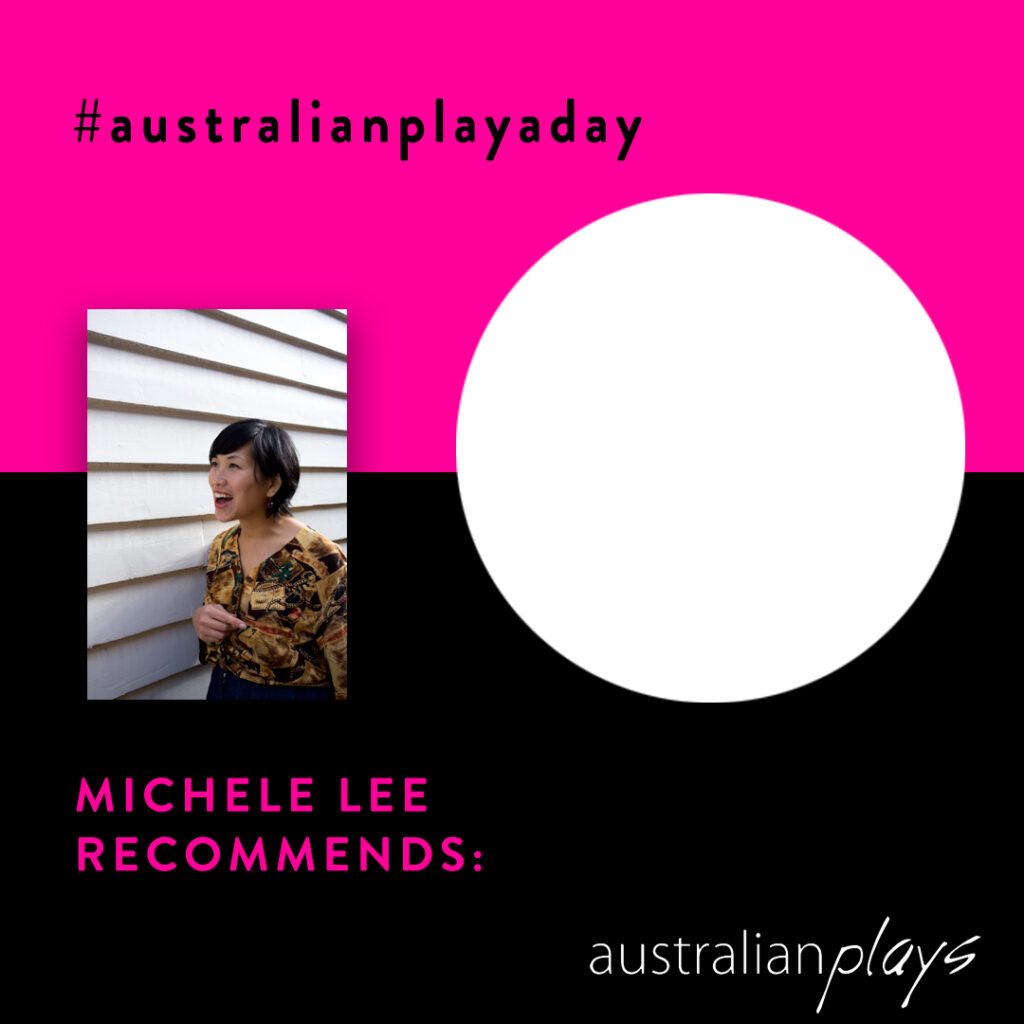
Muff/minusionesister/Shit
Van Badham, Anna Barnes and Patricia Cornelius
This is a prickly and delicious selection of three plays from three excellent playwrights. What I enjoy about Van Badham is her versatility, and I never know what sort of play I’ll read when I open up one of her plays. In ‘Muff’, I enjoyed the spaciousness of this work. Anna Barnes delights me with her voice, and the way she writes young female voices. And the inimitable Patricia Cornelius is in her resplendent stride with ‘Shit’.
Ma Ma Ma Mad
Merlynn Tong
It’s a toss-up between this and ‘Blue Bones’; they’re both in a sort of similar emotional territory/vibe for me so I went with this because it was written first. Merlyn has this way of balancing pain and humour, and creating these moments where you’re aching as you read them.
Beached
Melissa Bubnic
Whenever I think of Melissa Bubnic, I get a little parochial about her not being based in Australia anymore (unless she’s moved back here and I haven’t stalked her very adeptly). This was her second play for the mainstage, the first being ‘Stop.Rewind’. I love her dialogue, and her sharp characters.
